- HOME
- >
- 재단도서
- >
- 한국문학 번역ㆍ연구ㆍ출판지원
한국문학 번역ㆍ연구ㆍ출판지원
-
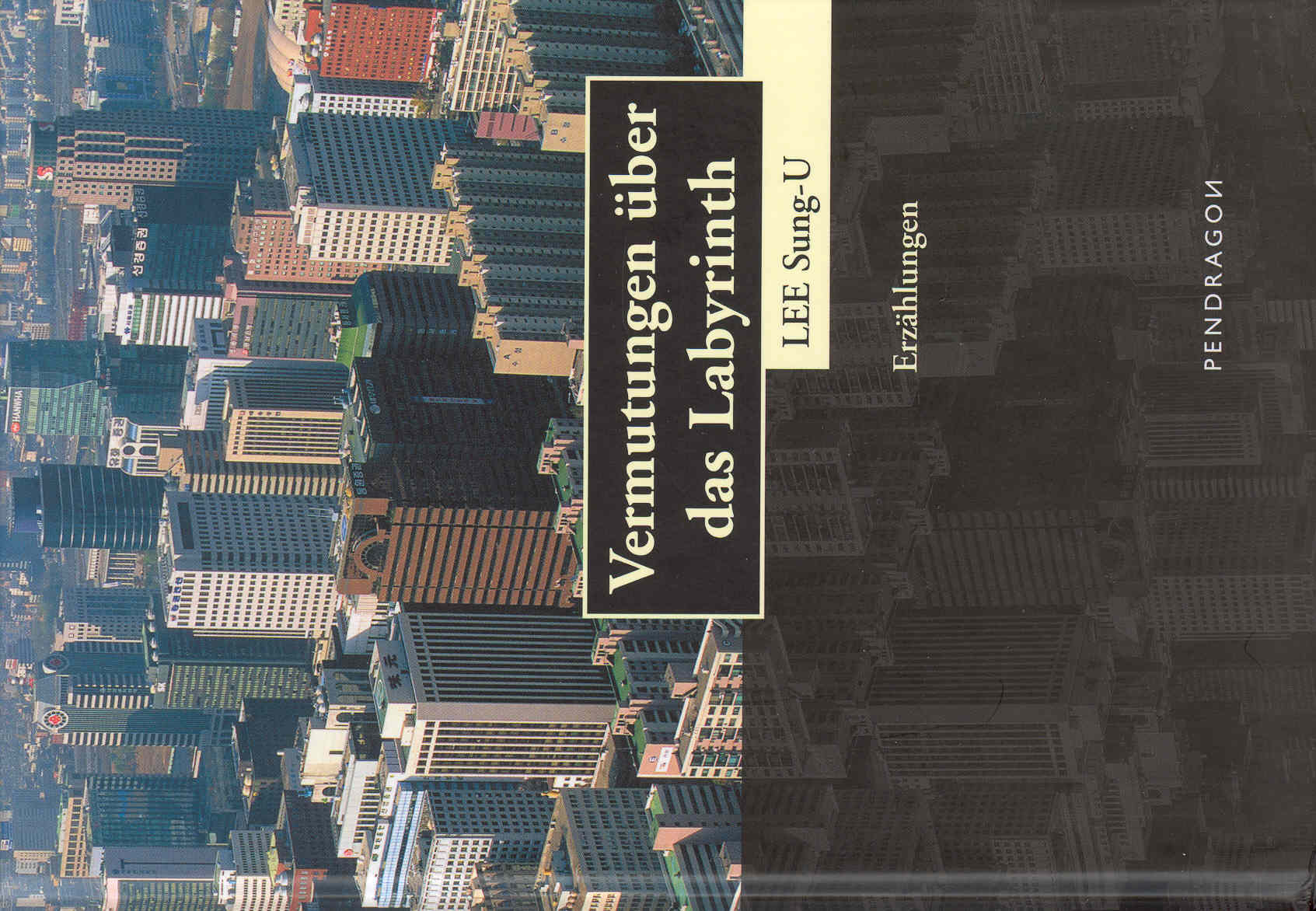
Fiction소설 | 미궁에 대한 추측(이승우 단편선)(前 한국문학 번역지원사업 지원) Vermutungen über das Labyrinth
저자 이승우 ㅣ 역자 이경분,Kai Köhler카이 쾰러
출판사 Germany독일 펜드라곤(Pendragon) ㅣ 출판일 2005(2002 지원)
미궁에 대한 추측-이승우단편선 Vermutungen Uber das Labyrinth
이승우 作/ 이경분·카이 쾰러 共譯/ 독일 펜드라곤(Pendragon) 刊
대산문학상 수상작 『생의 이면』의 해외 출간으로 프랑스와 독일 등에서 좋은 평을 받고 있는 작가의 단편집이 독일어로 번역, 출판되었다. 「나는 아주 오래 살 것이다」 「미궁에 대한 추측」 「하루」 「집의 내부」 「수상은 죽지 않는다」 등의 단편들이 수록되어 있다. 이 작품들은 사실적이고 평면적인 전개방식을 지양하고 서술시점의 변화 또는 복합적인 전개방식으로 실험적인 성격을 띠고 있다. 상징성이 강한 소재와 미스터리한 내용이 독특한 형식과 한 데 잘 어우러져 있다는 평을 받았다. 2002년 지원.
Vermutungen über das Labyrinth (Conjectures About the Labyrinth)
Lee Sung-U(Author)/ Kai Köhler, Lee Kyung-Boon(Translators)/ Germany: Pendragon,2004
This is a collection of short stories by an author whose Daesan Literary Awards winning Another Sides of Life has been critically acclaimed in France, Germany, and other countries upon publication overseas. This collection contains Ich werde sehr lange leben (I Will Live for an Incredibly Long Time), Vermutungen über das Labyrinth, Die Innenseite des Hauses (The Interior of the House), Der Ministerpräsident stirbt nicht (The Prime Minister Doesn’t Die), and other stories. This work exhibits an experimental approach which sublates a realistic, even style of plot development in favor of an approach which tells stories by way of a multiplicity of changing vantage points through which events unfold with complexity. It has been noted as a work rich in symbolic themes and mysterious subject matter well suited to its unique literary style. -
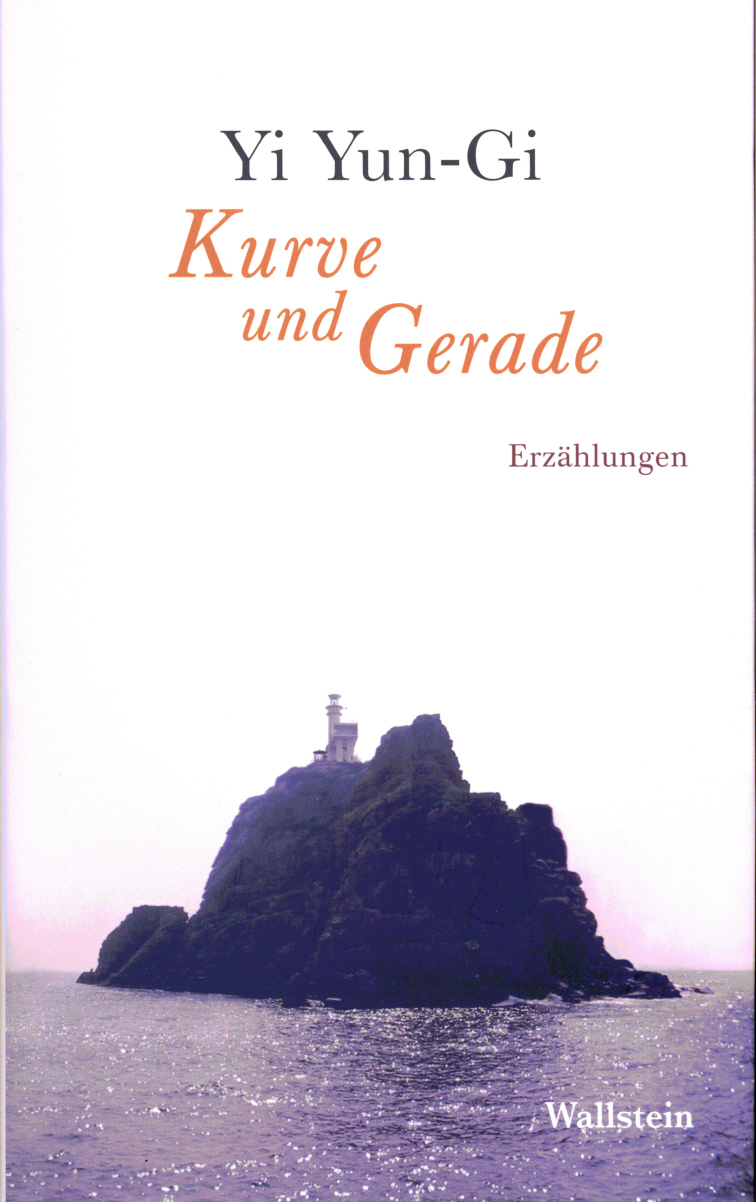
Fiction소설 | 직선과 곡선(이윤기 소설집)(前 한국문학 번역지원사업 지원) Kurve und Gerade
저자 이윤기 ㅣ 역자 Matthias Augustin 마티아스 아우구스틴,박경희
출판사 Germany독일 발슈타인(Wallstein) ㅣ 출판일 2008(2001 지원)
직선과 곡선 Kurve und Gerade
이윤기 作, 마티아스 아우구스틴, 박경희 共譯, 독일 Wallstein 刊
깊이있는 시선과 날카로운 직관, 맛깔스런 필치로 많은 독자를 확보하고 있는 이윤기의 단편선집이 독일에서 출간되었다. 이번 단편선집은 이윤기의 2000년도 대산문학상 수상 소설집 『두물머리』를 중심으로 대표단편 7편을 번역, 수록한 것이다. 번역가로도 왕성하게 활동하고 있는 이윤기의 소설은 길을 가던 선사가 툭 던지고 간 화두처럼 두고두고 말뜻을 곱씹게 만드는 소재들이 돋보이는데 이번 번역서에도 그런 특징이 잘 드러나 있다. 원래 『두물머리』 전체를 번역하려고 했던 역자들은 이 소설들 중 소재의 특수성이 두드러져 독일 독자들에게 그 의미를 제대로 전달하기 힘들 것으로 생각되는 세 편을 빼고 「직선과 곡선」「나비넥타이」를 추가했다. 책을 출간한 발슈타인 출판사는 페터 한트케, 귄터 쿠네르트 등의 책을 출판한 바 있는 수준급 출판사이다. 2001년 지원.
Kurve and Gerade (The Short Stories including Dumul Meori by Lee Yun-Ki)
Lee Yun-ki(Author)/Matthias Augustin, Park Kyung-Hee(Translator)/Germany:Wallstein
Dumool Meori, Yun-ki Lee’s third novel, brings together thirteen short stories and novellas which appeared in various literary journals between 1997 and 2000. In this collection, which does not forget the theme of the author’s previously published The Search for the True Essence of Life and Humanity, the author displays a rich understanding of a deeper humanity, and a literary style which is well-woven while at the same time being textured in meaning. His novels feature people who are easily twisted by desires and stubbornness in the face of their tiring realities. This work was an 8th Daesan Literary Awards winner. -
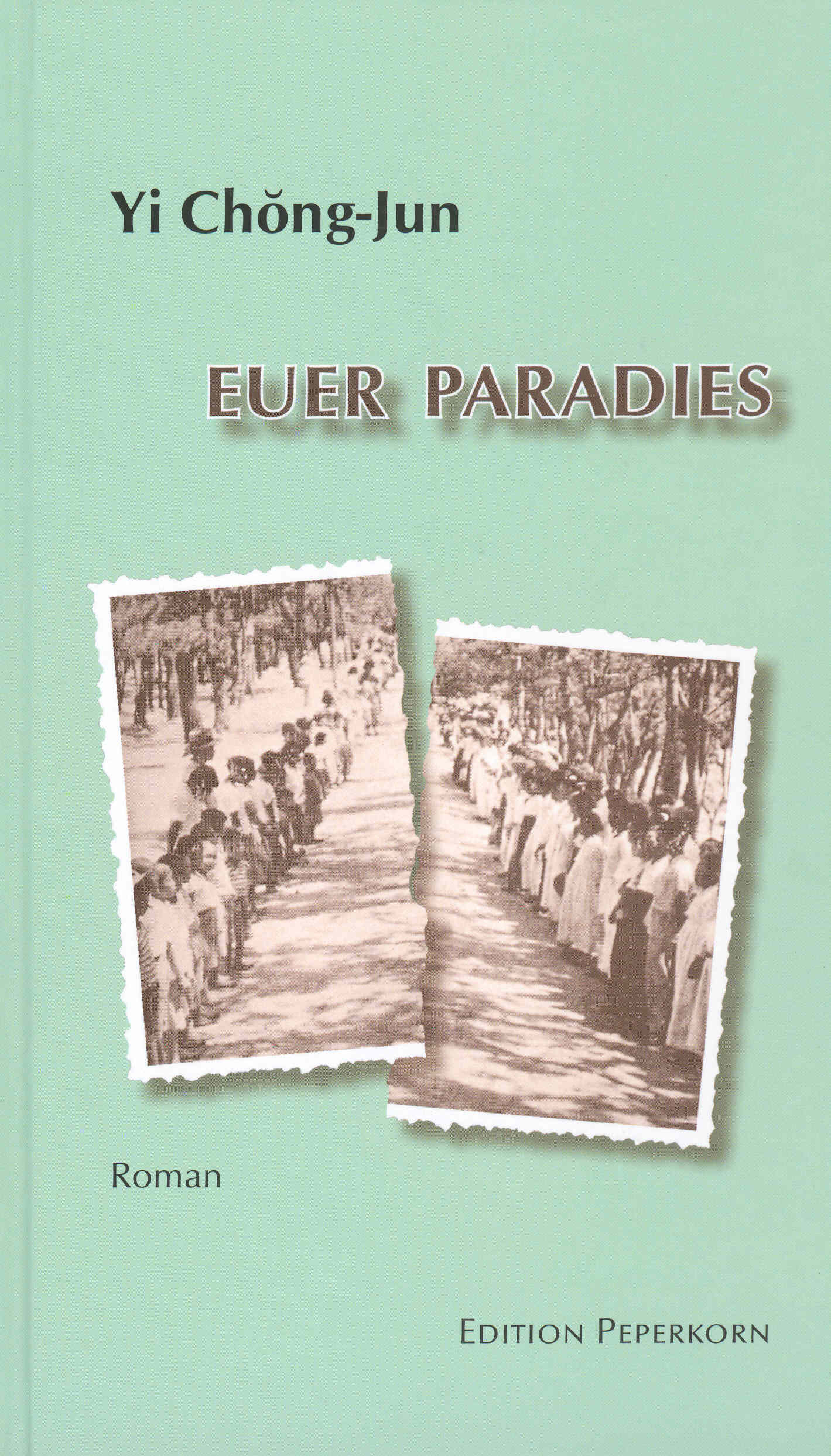
Fiction소설 | 당신들의 천국(前 한국문학 번역지원사업 지원)
저자 이청준 ㅣ 역자 김형식,Martin Maurach마르틴 마우라흐
출판사 Germany독일 페퍼코른(Peperkorn) ㅣ 출판일 2007(2001 지원)
이청준의 『당신들의 천국』은 지난 2003년 100쇄를 돌파했을 정도로 한국 현대소설계의 고전으로 손꼽히는 작품이다. 소설은 소록도 나환자촌을 ‘당신들의 천국’으로 만들겠다는 병원장 조백헌과 나환자들 사이의 갈등과 화해를 통해 “인간사회는 천국을 만들 수 있는가”라는 중요한 질문을 제기하고 있다. 역자인 김형식 동의대 교수는 60~70년대 한국사회의 총체에 대한 거대한 메타포인 이 작품의 의미를 독일어권 독자들에게 제대로 전달하기 위해 단어 하나하나의 선택에 많은 고심을 했으며(특히 작품의 키워드라 할 수 있는 “명분”과 “배반”의 역어 선택이 그러했다고 한다) 역자 자신부터 작품 의미를 완전히 이해하기 위해 소록도의 역사에 대해 철저한 고증을 했다고 밝혔다. 이 소설은 그 비중에 걸맞게 그간 주요 서구어로 번역, 출간돼 현지 독자들의 호평을 받은 바 있어 이번 출간이 오히려 때늦은 감이 있다. 영어권과 스페인어권에서는 재단의 번역지원을 받아 『Your Paradise』(제니퍼 리 譯, 미국 Green Integer 刊), 『Paraíso Cercado』(고혜선 譯, 스페인 Trotta 刊)라는 제목으로 출간되었으며 불어권에서는 최윤․파트릭 모뤼스의 번역으로 Actes Sud에서 선보인 바 있다(『Ce Paradis Qui Est le Vôtre』). 이번 독일어판 출간으로 한국문학 소개가 가장 활발한 독일어권 독자들이 어떤 반응을 보일지가 기대된다.
Euer Paradies (Your Paradise)
Yi Chong-Jun(Author)/Kim Hyeong-Sik, Martin Maurach(Translator)/Germany:Peperkorn
Domination and submission are the foci of this leading writer’s full-length novel, and by showing a symbolic miniature copy of Korean society between the 1970’s and the 1980’s, reexamines the meaning of life. Your Paradise (1976) realistically narrates within the leper colony, Sorok Island, the lives and subtle forces between the new director of the island hospital, Jo Bak-Heon and the wandering leper patients. Jo Bak-Heon and the leper citizens’ extraordinary will and labor, in transforming Sorok Island from ‘Your” Paradise, parallel the conflict and search for reconciliation between modern day Korea and its people. -
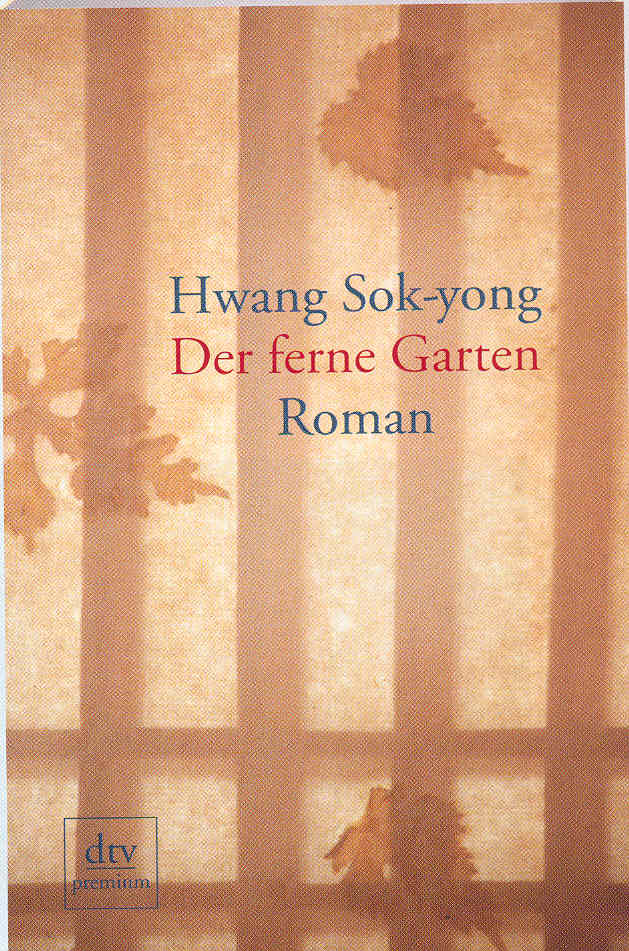
Fiction소설 | 오래된 정원(前 한국문학 번역지원사업 지원) Der ferne Garten
저자 황석영 ㅣ 역자 오동식,강승희,Torsten Zaiak토스텐 차이악
출판사 Germany독일 데테파우(dtv) ㅣ 출판일 2005(2001 지원)
오래된 정원 Der ferne Garten
황석영 作/ 오동식,강승희,토르스텐 차이악 共譯/ 독일 dtv 刊,2005
1980년대 이후 격동의 한국사회와 사회주의권의 붕괴를 배경으로 두 남녀의 파란만장한 삶과 사랑을 그려낸 장편소설이다. 암울했던 시절 한국사회의 변혁을 꿈꾸며 투쟁해 왔던 이들의 삶과 사랑을 깊이있게 다루고 있는데 작가 특유의 세련되고 힘있는 문장이 재미를 더한다. 특히 작가의 체험이 녹아 있는 감옥생활이나 한윤희가 독일 유학 중에 체험하는 베를린장벽 붕괴에 대한 묘사가 뛰어나다. 프랑크푸르트도서전에 맞추어 『한씨연대기』와 함께 독일의 메이저 출판사인 dtv에서 발간되어 매우 큰 주목을 받았다. dtv는 황석영 작가의 화제작 『손님』도 2006년 발간할 예정이다. 2001년 지원. -
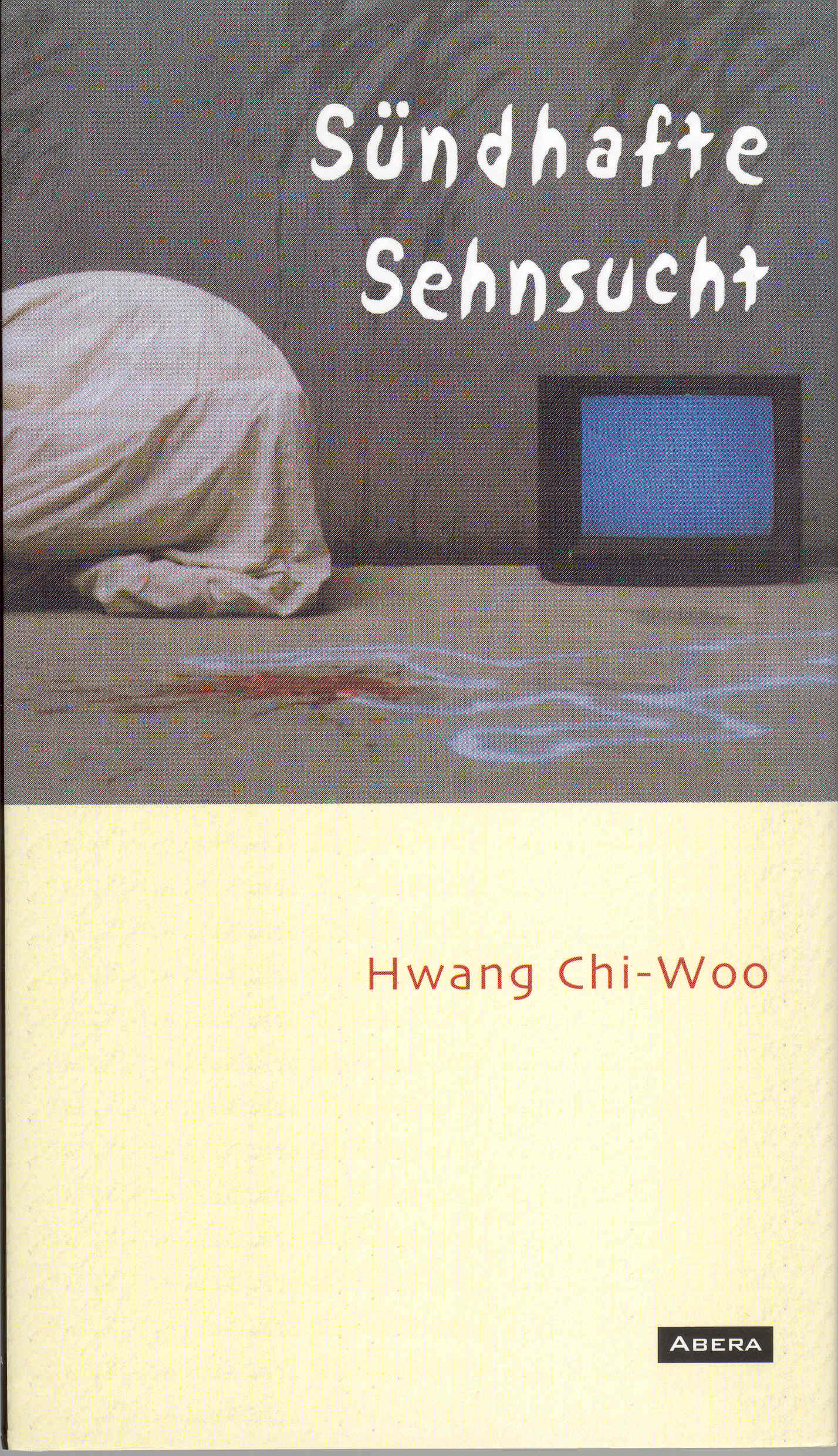
Poetry시 | 어느 날 나는 흐린 주점에 앉아 있을거다 (前 한국문학 번역지원사업 지원) Sundhafte Sehnsucht
저자 황지우 ㅣ 역자 KIM Miy-He 김미혜, Sylvia Braësel
출판사 Germany독일 아베라(Abera) ㅣ 출판일 2003(2000 지원)
어느 날 나는 흐린 주점에 앉아 있을거다 Sündhafte Sehnsucht
황지우(HWANG Ji-Woo) 作 / 김미혜(KIM Mi-Hye), 실비아 브래젤(Sylvia Bräsel) 共譯/ 독일 아베라(Abera) 刊
시인이면서 교수로, 조각가로 또 미술평론가로 활동하고 있는 다재다능한 시인이 삶의 근원적 슬픔에 대한 연민을 담은 시집이다. 동시대를 살아가는 사람들의 객관적인 삶의 이미지와 시인의 개별적인 삶의 이미지가 중첩되면서 중년의 내면일기를 투명한 슬픔의 미학으로 형상화했다. 슬픔과 연민, 정념들로 노출되는 40대 시인의 사생활은 칙칙함이 아닌 투명성으로 삶을 포착하고 있어 해외 독자들에게도 공감대를 형성할 수 있을 것으로 기대된다. 이 시집은 제 7회 대산문학상 수상작이면서 1999년 최고의 베스트셀러로 평단뿐 아니라 일반 독자에게도 큰 호평을 받았다.
Sundhafte Sehnsucht (Someday I’ll be Sitting in an Overcast Bar)
Hwang Ji-Woo(Author)/ Scott Swaner, Lee Young-Jun(Translators)/ Germany:Abera,2003
Someday I’ll be Sitting in an Overcast Bar is a unique collection of poems in which the objective image of life held by contemporary people overlaps with the poet’s own image of life. The private life of the poet is clearly revealed with sadness, sympathy, and passion, and individual life is portrayed with great sensitivity as part of the landscape of the objective image of life. This is the tension created by the poet’s use of “overlapping language” and his use of a stage-like style as well as the author’s soul-searching, which delves all the way down to the roots of his desire. This work received the Daesan Literary Awards in 1999. -
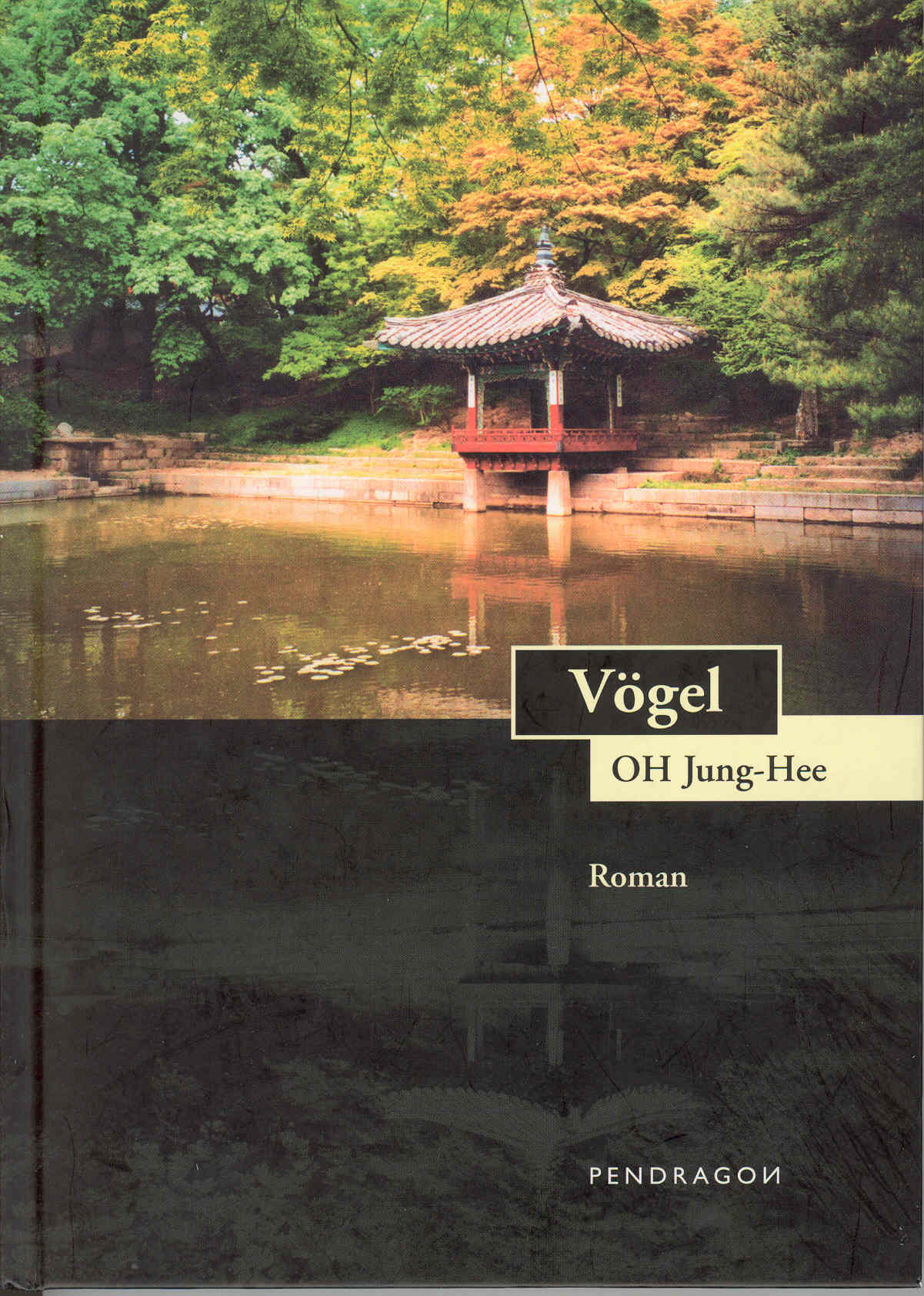
Fiction소설 | 새(前 한국문학 번역지원사업 지원) Vögel
저자 오정희 ㅣ 역자 김선희, 김 에델트루트Edeltrud Kim
출판사 Germany독일 펜드라곤(Pendragon) ㅣ 출판일 2002 (2000 지원)
『새』는 대산문화재단의 한국문학 번역지원을 받은 김선희(번역가), 김 에델트루트(이화여대 독문과 교수) 씨가 번역하여 2002년 8월 독일 펜드라곤(Pendragon) 출판사에서 『Vögel』이란 제목으로 출간되었다. 이 번역서는 출간 당시 원작의 높은 작품성과 뛰어난 번역으로 인해 독일 평단의 호평을 받은 바 있고 『새』가 아시아, 아프리카, 라틴 아메리카의 여성 작가들에게 시상하는 리베라투르상의 16회 수상작으로 선정되었다. 심사위원이었던 번역가 예레미 가이네스 박사는 심사평을 통해 “오정희는 주인공 ‘우미’를 도덕적 교훈의 색채나 영웅화하는 어조 없이 결코 까다롭게 느껴지지 않는 객관적이고 섬세한 산문으로 그림으로써 독일 독자들이 한국 어린이의 일상 생활을 들여다 볼 수 있게 했다. 이 소설은 충격적인 것은 아니지만 오랫동안 그 정신은 독자의 뇌리 속에 남아 있다”고 이 작품을 평했다.
Vögel(Bird)
Oh Jung-Hee (Author)/ Kim Edeltrud, Kim Sun-Hi (Translators)/ Germany: Pendragon
A medium-length story published in 1996, Vogel depicts the experiences of a volunteer social worker dealing with problematic children at an elementary school, and how these children, instead of receiving compassion and protection from family and society, alone must endure and live. The ‘TV Munhakgwan’ broadcast an adaptation back in 1999. The translators said this book “describes--without adornment--the problem of the family unique to Korea, and the lives of its people. It also criticizes a side of society long overdue, unfolding through implicit, charming language. We wanted to introduce German readers to this.” Vogel was awarded the Liberatur Preis, the German prize given to Asian female writers, in 2003, and the Eleventh Daesan Literary Awards for translation. -

Fiction소설 | 놀부는 선생이 많다(前 한국문학 번역지원사업 지원) Nolbu hat viele Lehrer
저자 이청준 ㅣ 역자 Sang-Kyong Lee 이상경,Erika Reichl, Brigitte Schantl, Andreas S
출판사 Germany독일 Peperkorn ㅣ 출판일 2001(1999 지원)
심청이는 빽이 든든하다 / 놀부는 선생이 많다 Sim Chong hat gute Beziehungen / Nolbu hat viele Lehrer
이청준 作, 이상경·안드레아스 쉴머·브리기트 샨틀·에리카 라이헬 共譯, 독일 페퍼코른 刊, 2001
중진 작가 이청준이 우리 민족의 정신과 삶의 애환이 고스란히 담긴 판소리 『심청가』와 『흥 부가』를 풍자와 해학을 곁들여 동화로 엮은 것이다. 지난 해 10월 번역, 출간된 『Der Hase im Wasserpalast 토끼야, 용궁에 벼슬가자』에 이어 3대 판소리 동화집이 모두 번역됐다. "원작 특유의 해학을 그대로 전하려고 노력했다"는 번역자 이상경 교수(경북대)는 판소리에 생소한 독일어권 독자들의 이해를 돕기 위해 원작의 삽화를 그대로 실었을 뿐만 아니라 판소리의 유래 및 심청가, 흥부가의 내용과 주제의식 등에 대한 자세한 설명을 곁들였다. 1999년 지원.
Sim Ch’ŏng hat gute Beziehungen, Nolbu hat viele Lehrer (Sime-chong si Well-Connected, Nolbu Hat Many Teachers)
Yi Chong-Jun (Author)/ Lee Sang-Kyong, Andreas Schirmer, Brigite Schantl, Erika Reihel (Translators)/ Germany: Peperkorn, 2001
Veteran writer Yi Chong-Jun re-interprets pansori Song of Sim Ch’ŏng and Song of Heungbu in Pansori Tales, completing the representative pansori trilogy, following Der Hase im Wasserpalast translated and published in October 2000. With the release of Rabbit, Let’s go take a post at the Dragon King’s Palace and Nolbu hat viele Lehrer in 1996, this book, printed in 1997, ties in Sim Ch'ong Hat Gute Beziehungen, Nobody Can Stop Chunhyang?, and Der doppelte Ong as part of the Eine altkoreanische Volksdichtung - neu erzählt’ series. Yi Chong-Jun fleshes out commonly atrophied works, making them specific and highly enjoyable to encourage reader participation, and adopts a natural storytelling taryeong (heartrending ballad) manner to promote Korean karak (tune). The author, vexed by the generic pansori portrayed by the hackneyed and dull stories of ‘good triumphs over evil’ or punitive justice as seen in ‘Filial Sim Ch’ŏng’ or ‘Natured Heungbu,’ shows instead, as in Sim Ch’ŏng Hat Gute Beziehungen, the penniless Shimbongsa asking his wife Kwak for more sons when she is busy making a living; Nolbu Hat Viele Lehrer dissolves the grief of Heungbu with laughter when, barely managing by making shoes, rope, and the like, he takes someone else’s flogging in return for money and is robbed of even that. “We did our best to keep the distinctive humor intact,” said the translator Professor Lee Sang-Kyoung, who not only included the original illustrations but detailed explanations on the origin of pansori, and the summary and themes in Song of Sim Ch’ŏng and Song of Heungbu for German readers unfamiliar with pansori. -

Fiction소설 | 착각(前 한국문학 번역지원사업 지원) Illusion
저자 안정효 ㅣ 역자 Minki jeung 정민기, Stefan Straub
출판사 Germany독일 Peperkorn ㅣ 출판일 2001(1999 지원)
착각Illusion
안정효 作/ 정민기,스테판 스트라우프 共譯/ 독일 Peperkorn 刊
정민기(번역가) ·스테판 스트라우프(한국외국어대) 교수가 번역하여 페퍼코른(Peperkorn)에서 출간한 『착각』에는 표제작인 「착각」을 비롯하여 「세 사람의 고향」「악부전」등 세 편의 중편이 실려 있다. 99년에 발표한 이 작품들은 "인생이란 참으로 마음 먹은대로 안되는 것"이라는 생각을 다양한 방식으로 드러내고 있으며 삶의 보편적 가치들을 종종 뒤집어 바라보게 한다. 1999년 지원.
Illusion
Ahn Jung-Hyo (Author)/ Jeung Min-Ki, Stefan Straub (Translators)/ Germany: Peperkorn, 2001
Illusion covers three medium-length stories including Die Heimat Dreier Menschen, Der Böse Vater, and the title piece Illusion. These stories, published in 1999, retell the notion “life certainly does not happen the way you want it to” in various ways, inspiring a second look at the ‘universal’ values in life. If the moments we believed to be the happiest, the most loved, turn out to have been mere illusions, are our lives happy still? What is life after truth has left? These are questions most fundamental to our lives, and Illusion asks them of us. Based on the author’s experience, it recounts, from the author’s scribbles, the story of three friends with North as their birthplace on their Saturday fishing trips to Songmo Island in Ganghwa--an eight year old ritual. Der Böse Vater received the Kim Yu-Jong Literary Award and is a confession of the author’s dark past. -

Poetry시 | 어머니와 할머니의 실루엣(前 한국문학 번역지원사업 지원) Mutter, Grossmutter - Shilhouetten
저자 신경림 ㅣ 역자 PARK Jin Hyung 박진형, Matthias Augustin
출판사 Germany독일 Peperkorn ㅣ 출판일 2003(1999 지원)
어머니와 할머니의 실루엣Mutter, Grossmutter - Silhouetten
신경림 作/ 박진형·마티아스 아우구스틴 共譯/ 독일 Peperkorn 刊
1998년 대산문학상 수상작인 신경림의 『어머니와 할머니의 실루엣』의 독일어판 시집이 출간되었다. 번역가이자 부산외국어대 교수인 박진형과 번역가 마티아스 아우구스틴(Matthias Augustin)이 공역했다. 번역시집은 총 5부로 구성되어 창비에서 나온 원본의 형식을 그대로 따르고 있으며 책의 곳곳에 한국의 농촌 풍경을 담은 사진을 수록하여 시의 정취를 더하고 있다. 하드커버로 총 105쪽이다. 신경림의 시가 보여주는 떠돌이 삶의 회환, 소시민의 자화상 등은 독일인들에게 한국적인 정서를 가장 진솔하게 보여줄 수 있을 것으로 기대되고 있다. 오세영, 김춘수, 조병화, 김수영, 황동규 등에 이어 페퍼코른 출판사에서 출판한 한국시인선의 8번째 시집으로 발간되었다. 한편, 신경림의 작품은 『신경림시선』이 영어로, 『쓰러진 자의 꿈』이 불어로 번역되어 출간된 바 있다. 1999년 지원.
Mutter, Grossmutter – Silhouetten(Mutter, Grossmutter-Silhouetten)
Shin Kyong-Nim (Author)/ Park Jin-Hyung, Matthias Augustin (Translators)/ Germany: Peperkorn, 2003
Poignant beauty in The Poor Love Song also finds release in this Sixth Daesan Literary Awards laureate, The Silhouette of Mother and Grandmother: the endurance despite the disheartening farming conditions, the self-portrait of the petit bourgeois and the return of the wandering life in The Poor Love Song all show German readers a sincere reflection of Korean emotion. This is Peperkorn’s eighth Korean poetry collection after Oh Se-Young, Kim Chun-Su, Cho Byung-Hwa, Kim Su-Young, and Hwang Tong-Gyu. -

Fiction소설 | 토끼야, 용궁에 벼슬 가자(前 한국문학 번역지원사업 지원) Dir Hase im Wasserpalast
저자 이청준 ㅣ 역자 Sang-Kyong Lee 이상경,Erika Reichl, Brigitte Schantl, Andreas S
출판사 Germany독일 KAPPA ㅣ 출판일 2000(1999 지원)
토끼야, 용궁에 벼슬 가자 Der Hase im Wasserpalast
이청준 作/ 이상경,Andreas Schirmer,Brigite Schantl,Erika Reihel 共譯 / 독일 KAPPA 刊
이 작품은 판소리 <수궁가>를 바탕으로 한 동화집으로 서로 속고 속이는 자라와 토끼의 이야기를 통해 세상살이와 인간관계의 여러 모습들을 풍자적으로 그렸다. 남도소리를 들으며 자란 이청준의 판소리에 대한 각별한 애정이 빚어낸 것이 ‘판소리 동화’이다. 이청준은 지난 96년 우리 민족의 정신과 삶의 애환이 담긴 판소리 다섯 마당을 풍자와 해학을 곁들여 동화로 엮은 바 있다. 번역자인 이상경 교수는 판소리에 생소한 독일 독자들의 이해를 돕기 위해 원작의 삽화를 그대로 실었을 뿐만 아니라 판소리의 유래 및 변천과정, 수궁가의 내용 및 주제의식 등을 17페이지에 걸쳐 자세히 설명하고 있다.
Der Hase im Wasserpalast(Hey, Rabbit! They Need You in the Palace Under the Sea!)
Yi, Chong-Jun (Author)/ Lee Sang-Kyong, Andreas Schirmer, Brigite Schantl, Erika Reihel (Translators)/ Germany: Kappa, 2000
Based on the pansori, Song of Underwater Palace, this folktale satires the way of life and humans, through a tale of deceit played by a rabbit and a turtle. Having heard namdosori (Southern province style) as a child, Yi Chong-Jun has a special affinity with pansori, and Pansori Nursery Tales is the end result; in 1996, he adapted five pansori acts as witty and satirical tales reflecting joys, sorrows, and spirit of the Korean people. Translator Professor Lee Sang-Kyong assists German readers’ understanding of pansori by inserting 17 pages of original illustrations, annotations to the course of pansori origin and transition, and story and theme of Song of Underwater Palace. -

Fiction소설 | 은마는 오지 않는다 (前 한국문학 번역지원사업 지원) Der silberne Hengst
저자 안정효 ㅣ 역자 Miran Kwak 곽미란, Jürgen Kreft
출판사 Germany독일 Pendragon ㅣ 출판일 2001(1998 지원)
은마는 오지 않는다 Der silberne Hengst
안정효 作/ 곽미란,위르겐 크레프트 共譯/ 독일 Pendragon 刊
안정효는 85년 마흔이 넘은 나이에 등단한 이래 『하얀 전쟁』『미늘』『할리우드 키드의 생애』 등을 발표하며 중견 작가로서의 위치를 확고히 하고 있다. 함부르크 대학의 위르겐 크레프트 교수와 곽미란 씨가 번역한 이 작품은 한국 전쟁의 충격속에서 시대적인 고통과 아픔을 겪은 평범한 사람들의 삶을 사실적으로 다루고 있다. 영어와 덴마크어로도 번역되었고 영화화되기도 하였다. 한국적 이야기를 다루고 있지만 인간의 보편적인 행동 전형들을 보여주고 있어 독일 독자들에게 공감을 얻을 수 있을 것이라는 평이다. 1998년 지원.
Der silberne Hengst(The Silver Horse Doesn't Come)
Ahn Jung-Hyo (Author)/ Kwak Miran, Jürgen Kreft (Translators)/ Germany: Pendragon, 2001
Ahn Jung-Hyo renders, realistically, the lives of ordinary people suffering from the pain and grief amidst the shocking aftermath of the Korea War. Geumsan village, still scarred with the memories of Japanese soldiers from the colonialist rule, suffers again as the Korea War breaks out and it becomes a UN station as result of MacArthur’s Incheon landing operations. The changing village people, despite their efforts to keep their lives as before, are portrayed through the eyes of the children. It has received very warm welcome by the global community: the American Soho press printed it under the title Silver Stallion, and in 1992, Denmark’s Husets Forlag translated and released the text under the title Generalens Genkomst, and the director Jang Gil-Su made a film adaptation, which received the award for best leading actress at the Festival des Films du Monde in Montreal. -

Fiction소설 | 희망(前 한국문학 번역지원사업 지원) Hoffen
저자 양귀자 ㅣ 역자 PARK Kyng-Hee 박경희, Matthias Augustin
출판사 Germany독일 EOS ㅣ 출판일 2003(1998 지원)
희망 Hoffen
양귀자 作/ 마티아스 아우구스틴·박경희 共譯/ 독일 이오스 刊
1991년에 발표된 양귀자의 장편소설 『희망』을 독일어로 번역하여 독일 이오스(EOS)에서 발간한 책이다. 양귀자의 『희망』은 머무를 곳을 찾지 못하는 이들의 숙소인 '나성여관'을 중심으로 등장인물들과 그들 사이의 관계를 통해 모순으로 가득하며 나약하고 허술한 한국 현대사회의 구조를 여실히 보여주고 있는 작품이다. 따라서 이 소설은 독일의 독자들에게 공식적으로는 좀처럼 접하기 힘든 한국의 현대사회에 대한 문제점과 한국의 특수성을 보여줄 것이다. 마티아스 아우구스틴은 석사논문으로 「서울의 달빛 0장 - 작가 김승옥 작품에 있어서의 도시양상」을 연구하는 등 한국 현대문학에 나타난 '도시성'에 대해 지속적으로 관심을 가져온 번역가이다. 1998년 지원.
Hoffen(Hope)
Yang Kwi-Ja (Author)/ Matthias Augustin, Park Kyung-Hee (Translators)/ Germany: EOS, 2003
Through the portrayal of the stray characters and the relationships between them surrounding their lodgings (‘Naseong Inn’), Hope, published in 1991, shows the weak and derelict infrastructure of modern Korean society so full of contradictions. Translator Matthias Augustin, who has had a steady interest in the ‘urbane’ inherent in modern Korean literature, believes the book will show German readers the problems of modern Korean history and the particularity of Korea usually inaccessible in formal data. -

Fiction소설 | 홍어(前 한국문학 번역지원사업 지원) Der Stachelrochen
저자 김주영 ㅣ 역자 Hyunsook Yun-Groβ 윤현숙, Nikolas Groβ
출판사 Germany독일 Peperkorn ㅣ 출판일 2001(1997 지원)
홍어 Der Stachelrochen
김주영 作/ 니콜라스 그로스,윤현숙 共譯/ 독일 Peperkorn 刊
윤현숙·니콜라스 그로스 교수 부부가 번역한 『홍어』는 중진작가 김주영 씨의 제 6회 대산문학상 수상작이다. 지조(志操)와 고립의 분위기를 자아내는 순백의 눈 세계 속에서 산골마을의 사춘기 소년이 그려내는 어머니의 삶을 담고 있다. 역자는 "한국의 조그만 산골 마을과 눈 오는 겨울이라는 한정된 자연이 빚어내는 독특한 분위기 속에서 『홍어』의 '어머니'인 한 여성이 보여주는 삶의 모습은 어떤 문화권을 막론하고 독자들에게 공감을 불러일으킬 수 있을 것으로 본다"고 기대감을 표시했다. 1998년 지원.
Der Stachelrochen(Skate Fish)
Kim Joo-Young (Author)/ HyunSook Youn-Gross, Nikolaus Gross (Translators)/ Germany: Peperkorn, 2001
It took ten years since her last novel, Fishermen Do Not Bend Reeds, for prominent author Kim Joo-Young to write Der Stachelrochen (‘The Skate’), winner of the Sixth Daesan Literary Awards in 1996 and source material adapted for TV MunhakGwan (‘Literature Showcase’). The novel depicts the pure white snow, its constant and isolated atmosphere, and the life of a mother living in the secluded hillside village there, as seen through the eyes of her pubescent son. The mother leads a passive life of waiting for the husband (symbolized by ‘skate’ and ‘stingray kite’) who has abandoned them. She makes preparations, but the surprise turn is that she has been preparing to leave, herself. The story concludes with the return of the father and of normalcy, save for the now absent mother. The picture of a woman living life as ‘mother’ in the unique, restricted atmosphere of the small, Korean hillside village and winter of snow is sufficiently powerful to evoke emotion from readers. -

Children아동문학 | 물에서 나온 새(前 한국문학 번역지원사업 지원) Von Blumen,Vögeln und adneren nutzlosen Dingen
저자 정채봉 ㅣ 역자 Min Sunwoo 선우민
출판사 Germany독일 EOS ㅣ 출판일 2001(1997 지원)
물에서 나온 새Von Blumen, Vögeln und anderen nutzlosen Dingen
정채봉 作/ 선우민 譯/ 독일 이오스 刊
독일에서 출판된 첫 번째 한국 동화집인 이 책은 올해 1월 타계한 아동문학가 정채봉의 동화집이다. 작가의 눈부신 문체와 아름다운 영혼이 섬세하게 살아 있는 사색 동화집으로 삶을 향한 따스한 시선이 담겨 있다. 독일 본대학의 선우민 씨가 번역하였고 직접 삽화도 그렸다. 선우민 씨는 출판이 늦어져 작가에게 번역서를 못 보여드린 것이 늘 죄송스럽고 마음에 걸린다고 했다. 1997년 지원
Von Blumen, Vögeln und anderen nutzlosen Dingen(The Bird Who Came Out of the Water)
Chong Chaebong (Author)/ Min Sun-Woo, Kim Nam-Ok (Translators)/ Germany: EOS, 2001
Von Blumen, Vogeln und Anderen Nutzlosen Dingen marks the foremost book of Korean original nursery tales translated into not just German but into any Western language. Nineteen stories including the title piece The Bird That Came From Water, Doggie Waltz, Violets and A Chorus of Angels make up this meditative collection. The author’s sparkling sentences and his beautiful soul within exhale his warm outlook on life to reach international audiences. Universität Bonn’s Min Sun-Woo translated, and illustrated, the pages: “I took every care to translate, intact, the genuine feeling present in the original text,” Min Sun-Woo said. The only thing lacking appears to be the author’s approval of his welcome in the West as it was published posthumously. -

Fiction소설 | 어느 별의 지옥 (前 한국문학 번역지원사업 지원) Die Frau im Wolkenschloss
저자 김혜순 ㅣ 역자 Kim Young-Ok 김영옥, Han Jongwha 한종화
출판사 Germany독일 Peperkorn ㅣ 출판일 2001(1997 지원)
Die Frau im Wolkenschloss (A Woman in Cloud Castle)
Kim Hye-Soon (Author)/ Kim Young-Ok, Han Jong-Wha (Translators)/ Germany: Pendragon, 2001
Pendragon, the German publisher of Korean Literature series, has printed this collection of poetry by the much-deserved poet Kim Hye-Soon, vanguard of language externalization. Drawn from six books including the Juvenelia From Another Star, Which Star Which Hell, My Upanisad Seoul, The Poor Love Machine, 60 pieces are nominated. Hers is an inventive technique where new vigor rises from breathing passion into lost memories. Well-received in Germany, Kim Hye-Soon has recited poetry in Berlin, Hamburg, and Leipzig in 2000. -

Drama희곡 | 영월행 일기(前 한국문학 번역지원사업 지원) Es ist weit von Seoul nach Yongwol
저자 이강백 ㅣ 역자 Sylbia Bräsel, Kim Miy-He 김미혜
출판사 Germany독일 Peperkorn ㅣ 출판일 1999(1997 지원)
영월행 일기 Es ist weit von Seoul nach Yongwol
이강백 作 / 김미혜,Sylvia Bräsel 共譯 / 독일 Peperkorn 刊
「영월행 일기」「봄날」「파수꾼」「결혼」등 한국의 대표적 희곡작가인 이강백의 희곡 4편이 수록돼 있다. 단종애사를 소재로 한「영월행 일기」는 역사의 구조가 쉽게 바뀌지 않는다는 관점에서 단종 시대와 현실을 오버랩 시키고 있으며 뛰어난 상상력으로 현실과 과거를 교차시키면서 정신적 풍요의 가치를 제시하고 있는 작품이다.「파수꾼」은 잘 꾸며진 이야기로 위협과 조종이라는 권력의 메커니즘을 가시화하기 위해 두려움의 놀이를 연출하여 권력에 대한 믿음, 인간 이성의 미성숙과 근절에 대한 풍자를 하고 있는 작품이다. 「결혼」은 결혼 사기꾼의 예를 통해 물질적 관점에서만 모든 것을 보는 사회를 고발하고, 「봄날」은 동아시아적 전통에 묶여 있는 것 같지만 스스로 완성되는 과정에 대한 반응을 옛 문화에 근거한 문화적 가치와 사고(思考) 구조를 그린 작품이다.
Es Ist Weit von Seoul nach Yongwol.(Diary of the Journey to Yongwol)
Lee Kang-Baek (Author)/ Sylbia Bräsel, Kim Miy-He (Translators)/ Germany: Peperkorn, 1999
The four plays, Diary of a Journey to Yongwol, Spring Day, The Lookout, and Getting Married, by the popular playwrite Lee Kang-Baek gathers together to make this fine volume. Diary of a Journey to Yongwol uses the sad history of King Danjong as material in overlapping current reality and the Danjong era to emphasize the point that historical structure does not easily change; it presents the value of spiritual wealth by creatively intersecting past and reality. The Lookout performs a fear play in order to amplify the threat/control power mechanism: it satires the religiosity of power, the immaturity of man’s reason and its final eradication. Getting Married exposes, through the story of a marriage fraud, a society absorbed with materialism. Spring Day sketches, although seemingly bound by East-Asian tradition, the mental framework and cultural value based on cultures of the past in response to the self-completion process. -

Fiction소설 | 김 약국의 딸들(前 한국문학 번역지원사업 지원) Die Töchter des Apothekers Kim
저자 박경리 ㅣ 역자 Youn-Gross Hyunsook 윤현숙, Nikolaus Gross
출판사 Germany독일 Pendragon ㅣ 출판일 1999(1996 지원)
김약국의 딸들 Die Töchter des Apothekers Kim
박경리 作 / Nikolaus GROSS,윤현숙 共譯 / 독일 PENDRAGON 刊
이 소설은 독일어로 번역된 박경리씨의 첫 번째 작품이다. 1962년에 발표된 『김약국의 딸들』은 1860~1920년을 시간적 배경으로, 남해안의 작은 항구도시인 통영을 공간적 배경으로 하여 한약방을 운영하는 김성수와 그의 아내 한실댁, 그리고 다섯 딸들의 운명을 다루고 있다. 이 작품은 인물들의 성격과 열정에 대한 매혹적인 묘사를 통해 한국의 가족구조를 비롯한 사회적 삶의 모습을 잘 보여주고 있다. 이 작품에 나타난 한국사회의 인간관계 및 문화적 특성들은 작품의 시간적 배경이 1900년대 초반을 전후한 시기임에도 불구하고 오늘의 그것들과 깊은 연속성을 가지고 있다. 대화의 형식, 식생활 습관, 주거형태, 권위․질서에 대한 사고방식, 결혼식, 장례식, 제사, 무속신앙 등의 한국의 일반적인 문화적 특성들은 다른 문화권에 속한 독자들에게 이국적 정감을 불러일으킬 뿐만 아니라 정열, 사랑, 증오, 정절, 배신, 기쁨, 고통, 질병, 사망 등과 같이 어느 사회에서나 공통적으로 볼 수 있는 인간의 감정과 운명을 대변해 주는 독특한 등장인물과 조화를 이루면서 긴장감 넘치는 이야기를 엮어내고 있다.
Die Töchter des Apothekers Kim.(The Daughters of Pharmacist Kim)
Park Kyong-Ni (Author)/ Hyunsook Youn-Gross, Nikolaus Gross (Translators)/ Germany: Pendragon, 1999
First ever Park Kyung-Ni novel to be translated into German, The Curse of Kim’s Daughters (1962) unfolds through the period between 1860 and 1920, over the fate of the herb apothecary Kim Seong-Su, his wife Han-sil and their five daughters living in the small port city Tongyoung by the South Sea. The author paints an enchanting picture of character, ardor, and eventually, the Korean and social family. Despite its timeframe of the early 1900’s, there exists continuity between past and present culture and human relations in Korea. Korean attributes such as conversation format, eating habits, living quarters, weddings, funerals, sacrificial rites, shamanism and perception of order and authority bridges across to foreign readers, weaving the unique allegory of universal humanity of love, passion, hate, devotion, betrayal, joy, pain, illness and death into a tense symphony. -

Fiction소설 | 내 영혼의 우물(前 한국문학 번역지원사업 지원) Der Brunnen meiner Seel
저자 최인석 ㅣ 역자 Kim Sun-Hi 김선희, Edeltrud Kim
출판사 Germany독일 Middelhauve ㅣ 출판일 2001(1996 지원)
내 영혼의 우물 Der Brunnen meiner Seele
최인석 作 / 김선희,김 에델트루트 共譯 / 독일 Middelhauve 刊
『내 영혼의 우물』은 인간의 실존 문제를 명쾌하게 간파하여 자신을 되돌아보게 하는 최인석의 소설집으로 제 3회 대산문학상 수상작이기도 하다. 이 책에는 표제작인 「내 영혼의 우물」을 비롯하여 「새, 떨어지다」「세계의 바닷가」등 세 작품이 실려있다. 번역자인 김선희씨는 “이 작품은 유토피아를 동경하는 인간의 실존 문제를 작가 특유의 친숙한 문체에 아이러니와 우연성을 가미시켜 그려내고 있다”면서 “한국적 분위기가 짙게 담겨져 있기는 하나 독일 독자들이 공감대를 형성할 수 있을 것”이라고 번역소감을 밝혔다. 미델하우베 출판사는 50여년의 전통을 가진 뮌헨의 대표적 출판사이다. 붉은 바탕위에 검은 눈을 넣은 표지가 인상적이다.
Der Brunnen meiner Seele(The Well of My Soul)
Choi In-Suk (Author)/ Kim Sun-Hi, Kim Edeltrud (Translators)/ Germany: Middelhauve, 2000
The Third Daesan Literary Award novel, Der Brunnen Meiner Seele (‘My Soul’s Well’) penetrates ontological questions and brings about self-reflection in three fictions, My Soul’s Well, Ein Vogel, Der Faellt, and Am Strand der Welt. Translator Kim Sun-Hi describes it as a book of irony and contingency written in the author’s familiar phrasing of the existential human wish for Utopia. True, the Korean touches are strong, but German readers will not find sympathy difficult. Middelhauve has published for over 50 years and continues to be a distinguished press in Muenchen. The book features an impressive cover-art of a black eye over a red background. -

Fiction소설 | 외딴 방(前 한국문학 번역지원사업 지원) Das Zimmer im Abseits
저자 신경숙 ㅣ 역자 Kim Youn-Ock 김윤옥
출판사 Germany독일 Pendragon ㅣ 출판일 2001(1996 지원)
외딴방 Das Zimmer im Abseits
신경숙 作 / 김륜옥 譯 / 독일 Pendragon 刊
『외딴방』은 열악한 환경 속에서 문학의 꿈을 키웠던 작가의 사랑과 아픔을 담은 자전적 소설이다. 열여섯에서 스무살까지를 배경으로 한 영혼의 외롭고 진지한 행로를 따뜻하게 포용하고 있는 이 소설은 감동적인 노동소설이면서 동시에 뛰어난 성장소설이다. 고향을 잃고 대도시에 나와서 정직하고 성실하게 살아가면서도 고통을 받던 얼굴 없는 사람들의 삶을 또렷하고 형상화하고 있을 뿐만 아니라, 노동자가 아닌 예술가로서 그것을 어떻게 표현해내야 하는가를 고뇌하는 소설이라는 평을 받았다. ‘시적인 소설가’라고 불리기도 하는 작가 특유의 감성적이고 주관적인 문체가 돋보인다.
Das Zimmer im Abseits(House of Isolation)
Sin Kyong-Suk (Author)/ Kim Youn-Ock, Ragni Maria Gshwend (Translator)/ Germany: Pendragon, 2001
The biographic novel Das Zimmer im Abseits (‘The Solitary Room’) movingly recaptures the love and suffering of the author who dreams of literature even under poor conditions. This book, both a touching labor book and a brilliant bildungsroman, warmly embraces the lonely and serious path of a life in the years between 16 and 20. Summoning faces and lives of those who, on losing their homes, move to the city and suffer even while living honest lives, The Solitary Room, agonizes over how to best express all the complex elements, not as a worker, but as an artist. The sensitive and subjective style unique to the writer sometimes referred to as the ‘poetic novelist’ emerges glowingly in this particular piece. -
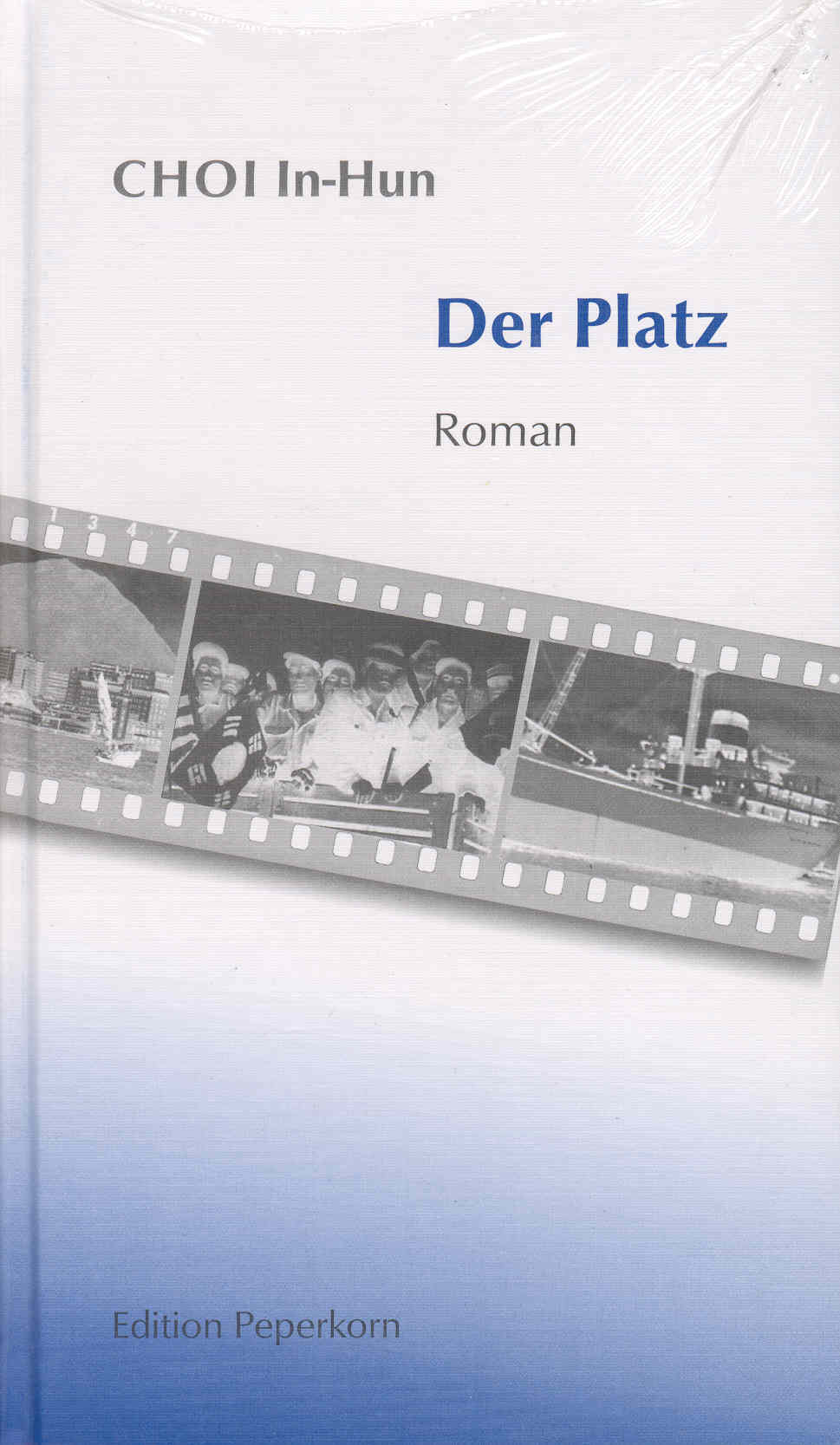
Fiction소설 | 광장(前 한국문학 번역지원사업 지원) Der Platz
저자 최인훈 ㅣ 역자 김희열,Ralf Deutsch랄프 도이치
출판사 Germany독일 페퍼코른(Peperkorn) ㅣ 출판일 2002(1995 지원)
광장 Der Platz
최인훈 作 / 김희열,Ralf Deutsch 共譯 / 독일 Peperkorn 刊
『광장』은 남북간 이데올로기 문제를 본격적으로 다룬 최인훈의 대표작으로 한국 대학생들에게 있어 필독서로 자리잡고 있다. 1960년 10월 <새벽> 지에 발표된 『광장』은 주인공 이명준의 삶을 통해 분단과 이념의 문제를 정면으로 그리며 남북 모두를 비판적으로 다룬 최초의 소설이다. 스스로도 『광장』을 대표작으로 꼽고 있는 최인훈은 이후 다섯 차례나 개작하였고 그 때마다 이 작품은 최인훈 문학의 ‘표준점’ 역할을 하였다. 번역자인 김희열 교수는 “이 작품에 나타난 분단과 이데올로기 문제는 독일도 역사적 체험을 공유한 바가 있어 독일어권 독자들의 공감대를 얻을 수 있다고 확신하기 때문에 이 작품을 번역하게 되었다”고 밝혔다.
Der Platz(The Plaza)
Choi In-Hun (Author)/ Kim Hi-Youl, Ralf Deutsch. (Translators)/ Germany: 독일 Peperkorn, 2002
Choi In-Hun’s masterpiece Der Platz (‘The Square’) fast emerges as required reading for Korean university students due to its treatment of the North-South question of ideology in earnest. Published in the journal ‘Saebyuk’ (‘Dawn’) on October 1960, The Square follows the life of the protagonist Yi Myung-Jun, and is the first ever novel to attack, so forthright, both North and South for the partition and difference of ideology. Choi himself calls The Square his best work, adapting it five times, and on each occasion, this has been the measure of standard in Choi’s opus. Translator Kim Hi-Youl revealed he chose this text in faith that German readers, as they too have had the experience, will sympathize with the partition and ideological conflict appearing in the novel.
